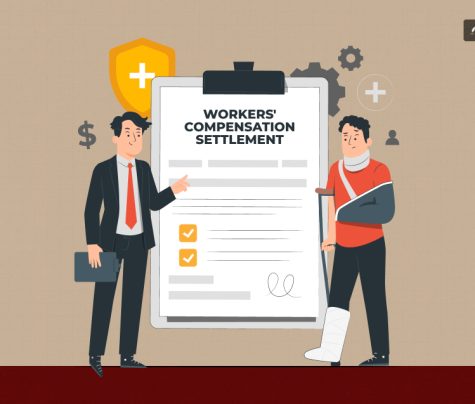
Be it a slip and fall in the office or a fracture or strain from repetitive lifting of heavy objects at work, workplace injury can be both physically and financially stressful.
But fortunately, most employers offer workers’ compensation for this very reason. It is a type of benefit that provides financial and medical support to employees who suffer work-related injuries or illnesses.
While the concept seems straightforward enough, understanding whether one is eligible for it and when to apply for it is quite difficult. This is due to varying laws and regulations surrounding workers’ compensation.
If you need some clarification on eligibility criteria for worker’s compensation, then this guide is here to help. It will give you a detailed look at who is eligible for workers compensation, ensuring you understand your rights and access the protections available to you.
What Is Workers’ Compensation?

As explained by the workers’ compensation lawyers in Louisville, workers’ compensation is essentially a state-mandated insurance program. Employees who suffer injury or illness in the course of their employment can avail a lot of benefits under this program.
Moreover, only employers or the company are required to fund the insurance. Employees need not contribute to it at all.
Workers’ compensation typically covers medical expenses, wage replacement, rehabilitation services, and compensation for permanent injuries. In some cases, it may also include survivor benefits. However, note that since this is a state-mandated program, the required benefits can vary a lot from state to state.
We have briefly explained the general benefits covered under Workers’ compensation below
- Medical expenses
In case of any workplace-related injuries or illnesses, workers’ compensation will cover all your costs of medical treatment. This includes everything from your visits to the doctor’s office and hospital stays to medications and physical therapy.
- Lost Wages
Wage loss is something that all of us are most concerned about when we fall sick or injured. However, if you fall ill or suffer from injuries because of your job and your employer provides workers compensation, then you dont have to worry about this point.
This state-mandated insurance program will provide you with a portion of your regular wages. While the exact amount will differ from state to state, it is usually a percentage of your average weekly earnings.
- Rehabilitation
If your injury or illness is preventing you from returning and doing your usual work, then you have the option to avail vocational rehabilitation benefits under the workers compensation program. This benefit focuses on several different aspects. It includes assessment, re-education/re-training, job modification, job placement assistance, and counseling.
- Disability and or Survivor benefits
In some cases, worker’s compensation also offers disability or survivor benefits. This means that if you suffer a major work-related injury or illness that leaves you permanently disabled and unable to return to any job, then you will receive financial assistance under workers’ comp.
Furthermore, if an employee passes away due to any injury or illness at work, their dependents may be able to avail of financial benefits under workers’ compensation.
It is important to remember that workers’ compensation is actually a trade-off between employees and employers. It is because, in exchange for these benefits, employees generally have to give up their right to sue their employer for negligence.
General Eligibility Criteria For Workers’ Compensation
While specific requirements can vary by state, the general criteria for workers’ compensation eligibility include:
Employment Status
You must be an employee of a company that has workers’ compensation insurance. This typically excludes independent contractors, freelancers, and volunteers, although some exceptions may apply.
Work-Related Injury or Illness
The injury or illness must have occurred in the course and scope of your employment. This means it should be directly related to your job duties or occur while you are performing work-related activities.
Reporting the Injury
You must report the injury to your employer within a specific time frame, which varies by state but is usually within 30 days. Failure to report promptly can result in a denial of benefits.
Filing a Claim
You must file a workers’ compensation claim with your state’s workers’ compensation board or commission. This involves submitting the required forms and documentation of your injury or illness.
Eligibility Criteria For Specific Categories of Workers
Understanding how different types of workers are treated under workers compensation laws can help you to understand if one is eligible for the same:
Full-Time Employees: Typically covered by workers compensation insurance, provided they meet the other eligibility criteria.
Part-Time Employees: Generally eligible, though the amount of benefits may be prorated based on their part-time status.
Seasonal Workers: May be eligible, but coverage can depend on the duration and nature of their employment.
Temporary Workers: Usually covered by the staffing agency that employs them, rather than the company where they are temporarily assigned.
Independent Contractors: Generally not eligible for workers’ compensation benefits. However, some states have specific criteria that can reclassify certain contractors as employees.
Undocumented Workers: In many states, undocumented workers are eligible for workers compensation benefits, although this can vary.
Common Situations and Considerations
Certain situations can complicate the determination of workers’ compensation eligibility:
Pre-Existing Conditions: If a work-related activity aggravates a pre-existing condition, you may still be eligible for workers’ compensation benefits.
Off-Site Injuries: Injuries that occur off-site can be covered if you are performing work-related tasks. For example, if you are injured while traveling for business, you may be eligible.
Lunch Breaks and Commuting: Generally, injuries that occur during lunch breaks or while commuting are not covered unless you were performing work duties at the time.
Misconduct: Injuries resulting from employee misconduct, such as horseplay, intoxication, or intentional self-harm, are typically not covered.
Special Cases and Exceptions
Certain employees may have specific conditions affecting their eligibility:
Federal Employees: Covered under the Federal Employees’ Compensation Act (FECA), which provides similar benefits to state workers compensation programs.
Maritime Workers: Covered by the Longshore and Harbor Workers’ Compensation Act (LHWCA) or the Jones Act, depending on their specific roles.
Railroad Workers: Covered by the Federal Employers Liability Act (FELA), which operates differently from standard workers compensation programs.
Steps to Take if You Are Injured at Work
If you are injured at work and believe you are eligible for workers compensation, follow these steps:
Report the Injury: Notify your employer as soon as possible, detailing how, when, and where the injury occurred.
Seek Medical Attention: Obtain medical care immediately and inform the healthcare provider that your injury is work-related.
Document Everything: Keep detailed records of your injury, medical treatment, and communications with your employer and the workers compensation board.
File a Claim: Submit the necessary forms to your state’s workers’ compensation board to initiate your claim.
Consult an Attorney: You should consult a workers’ compensation attorney if your claim is denied or you encounter issues. He or she will help you to navigate the process.
Final Thoughts
Understanding eligibility for it is crucial for ensuring you receive the benefits you deserve in the event of a work-related injury or illness. By knowing your rights and the specific criteria that apply to your situation, you can better navigate the workers’ compensation system and secure the support you need to recover and return to work.
Read More…
- Ways To Maintain Work-Life Balance In Legal Practice
- Understanding Your Rights As An Injured Worker In Toronto
- Workplace Negligence: Dealing With Your Employer for Safer Workplace











0 Reply
No comments yet.